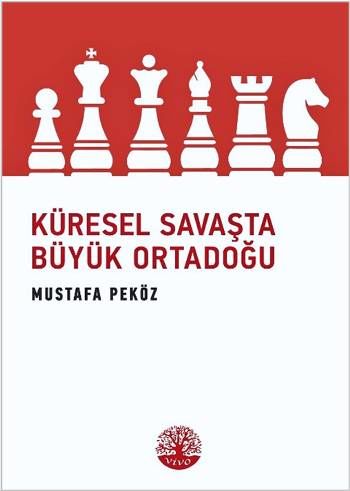
Küresel Savaşta Büyük Ortadoğu
Bu kitap, küresel sistem için hayati derecede önemli olan 'Büyük Ortadogu' cografyasini hedefleyen bölgesel sömürgelestirme politikalarinin arka planini inceliyor.
Küresel kapitalist sistemde ekonomik, politik, askeri, kültürel ve toplumsal iliskilerde çok yönlü degisiklikler yasaniyor. Kapitalist sistem, kendisini reorganize ederek yeni alanlara açilarak ilerliyor. Kapitalist küresellesme bir bakima bölgesel savaslar üzerinden kendisine yeni sömürü alanlari açiyor. Dünya kapitalist sistemi 'Büyük Ortadogu' olarak tanimladigi bölgeyi, küresel sistemin içine çekmeye çalisiyor. Azami karin son derece yüksek oldugu bölgeleri kontrol altinda tutarak küresel tekeller için bölgesel sömürge alanlari yaratmaya odaklanan uluslararasi güçlerin hedefinde basta Körfez bölgesi olmak üzere bütün Ortadogu bulunuyor.
Enerji yataklarinin bulundugu bölgeler ve çevresinin bölgesel bir savas alanina dönüsmesi, küresel stratejinin çok önemli bir parçasi olup, epey önceden hazirlanan bir politik plan dahilinde uygulanmaktadir. ABD'nin basini çektigi küresel barbarlar, Ortadogu'da yeni stratejik dengeler olusturmak için bölgesel savasi derinlestirmekle kalmiyorlar, etnik ve mezhepsel çatismayi yaygin olarak kullaniyorlar. Bir dönem El Kaide küresel tekellerin stratejilerinin uygulanmasi için bir araç haline getirilirken, bugün ise ISID ayni islevi görüyor. Bir kaos yaratma hareketi olarak konumlandirilan ISID, Ortadogu'nun bölgesel dengelerinin yeniden sekillendirilmesinde önemli bir rol üstlenmis bulunuyor.
Ortadogu merkezli uluslararasi ve bölgesel güç iliskileri yeniden sekillenirken, rekabet, çatisma ve ittifaklar iç içe gelisiyor. Ayni zamanda bölgesel güçlerin rolleri ve etki alani da hizla degisiyor. Küresel sistemin bölgesel stratejisine uyum saglayamayan Türkiye gibi ülkeler, bölgesel denklemin disina itilirken, Iran gibi ülkelerin ise çok daha fazla ön plana çikacagina dair güçlü emareler beliriyor.
Bölgesel iliskilerde güç dengelerini belirlemede çok daha üst düzeyde rol oynamaya baslayan Kürtler, gelecegin stratejik güç dengelerini belirleyecek bir konuma gelmeye basladilar. Bu durum Ortadogu'da haritalarin yeniden çizilmesi anlamina gelecektir.
Türkiye'nin Suriye, Irak politikasi çöktü. El Nusra ve ISID gibi Islamci hareketlere çok aktif destek vermesi, Kobani merkezli Rojava'nin tasfiyesi için izledigi strateji basarisiz kaldi. Böylelikle ISID'e karsi savasta ön plana çikan PYD-YPG gibi Rojava'nin politik ve askeri güçleri uluslararasi alanda taninir konuma gelirken, Türkiye çok daha fazla izole olmaya basladi.
'Büyük Ortadogu' stratejisi küresel savasin stratejik merkezi olarak islev görüyor. Uluslararasi ve bölgesel güç dengelerinin tamamen yeniden sekillendigi bu cografyadaki çok yönlü gelismelerin politik arka planini incelemek, alternatif stratejilerin olusturulmasi bakimindan da son derece önemlidir.
(Tanitim Bülteninden)
Sayfa Sayisi: 504
Baski Yili: 2015
Dili: Türkçe
Yayinevi: Vivo Yayinevi
Ilk Baski Yili : 2015
Sayfa Sayisi : 504
Dil : Türkçe
| Yayınevi | : | Vivo Yayınevi |
| Sayfa Sayısı | : | 504 |
| Basım Yılı | : | 2015 |
| ISBN | : | 9786056492617 |
| Dil | : | Türkçe |


